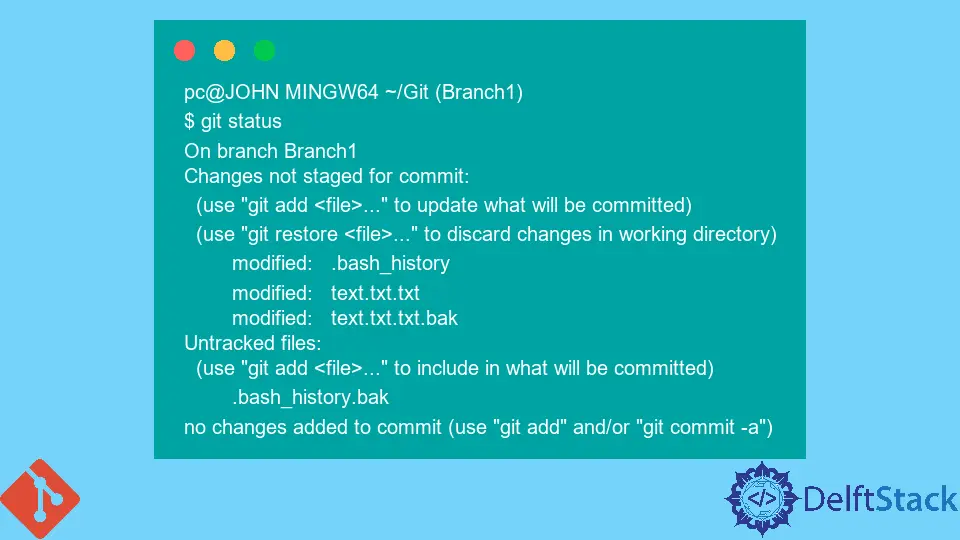在 Git 上建立和使用分支

本教程介紹 Git 分支。我們將看到 Git 分支如何幫助你組織專案。
我們將處理的一些命令是 git branch 和 git checkout。
在 Git 中使用 git branch 命令建立、顯示和刪除分支
我們使用 git branch 命令來建立、顯示和刪除分支。
你不能使用該命令在不同的分支之間進行切換。
git branch顯示你的倉庫中的所有分支。git branch <branch name>在我們的倉庫中建立一個新分支<branch name>。git branch -d <branch name>刪除分支<branch name>。在執行此命令之前先合併更改。git branch -D <branch name>無一例外地刪除一個分支。當你對決定持肯定態度時,請使用此命令。git branch -m <branch name>重新命名或移動分支。
讓我們建立一個名為 New_Branch 的新分支。
pc@JOHN MINGW64 ~/Git (main)
$ git branch New_Branch
檢查分支是否存在。
pc@JOHN MINGW64 ~/Git (main)
$ git branch
New_Branch
* main
我們從上面的輸出中有兩個分支,New_Branch 和 main。
現在讓我們嘗試刪除 New_Branch。
pc@JOHN MINGW64 ~/Git (main)
$ git branch -d New_Branch
Deleted branch New_Branch (was 78129a6).
當你有未合併的更改時,你將收到一條錯誤訊息。使用 git push origin --delete <branch name> 從遠端倉庫中刪除分支。
使用 git checkout -b <branch> 建立具有當前 Git 更改的新分支
git checkout 命令在專案的分支之間切換。
要檢查倉庫中的現有分支,請使用 git checkout <branch>。下面是一個例子。
$ git branch
Last_Branch
New_Branch
* main
pc@JOHN MINGW64 ~/Git (main)
$ git checkout New_Branch
Switched to branch 'New_Branch'
M .bash_history
M text.txt.txt
M text.txt.txt.bak
在上面的程式碼中,我們有兩個分支,New_Branch 和 Last_Branch。我們使用 git checkout New_Branch 從我們的 main 分支切換到 New_Branch。
使用 git checkout -b <branch> 切換到新分支。讓我們看一個例子。
pc@JOHN MINGW64 ~/Git (New_Branch)
$ git checkout -b Branch1
Switched to a new branch 'Branch1'
當你切換到新分支時,Git 會自動將你當前分支的更改儲存到新分支。看一下這個。
pc@JOHN MINGW64 ~/Git (Branch1)
$ git status
On branch Branch1
Changes not staged for commit:
(use "git add <file>..." to update what will be committed)
(use "git restore <file>..." to discard changes in working directory)
modified: .bash_history
modified: text.txt.txt
modified: text.txt.txt.bak
Untracked files:
(use "git add <file>..." to include in what will be committed)
.bash_history.bak
no changes added to commit (use "git add" and/or "git commit -a")
上面的輸出證明 Git 儲存了從 main 分支到 Branch1 的更改。
John is a Git and PowerShell geek. He uses his expertise in the version control system to help businesses manage their source code. According to him, Shell scripting is the number one choice for automating the management of systems.
LinkedIn